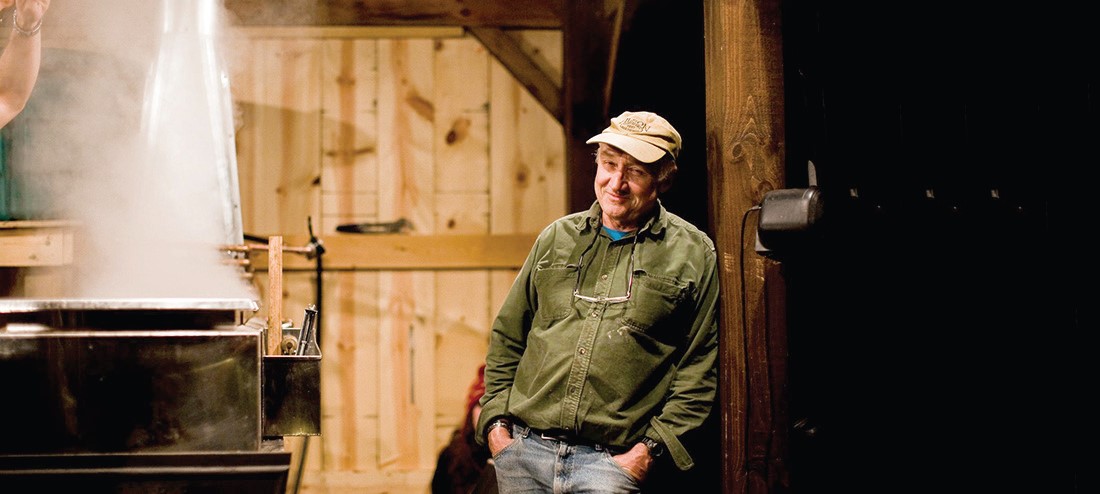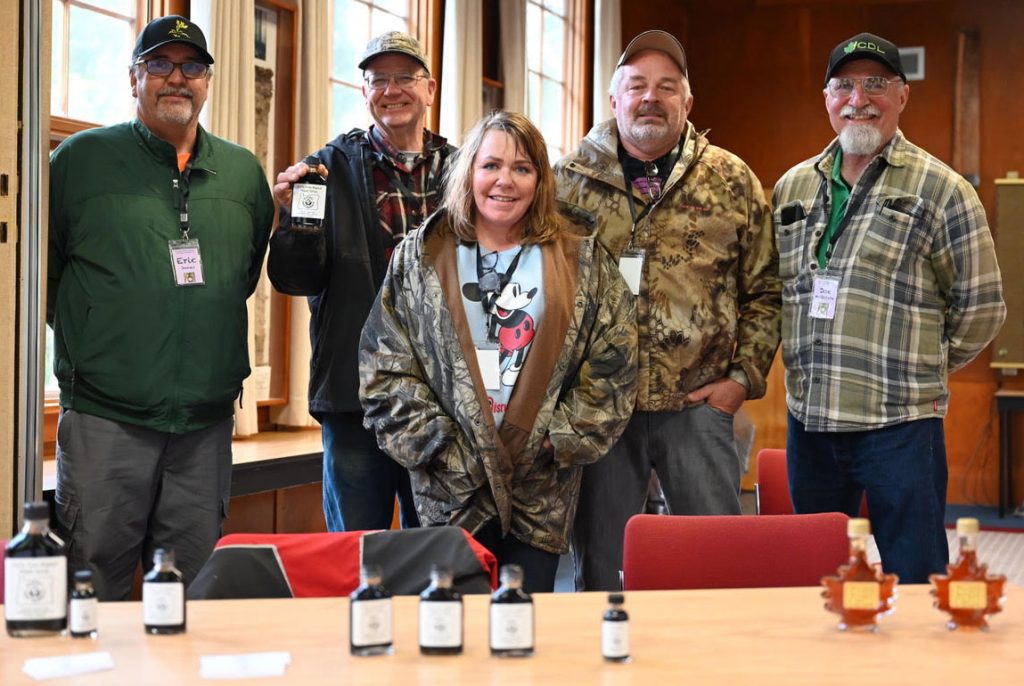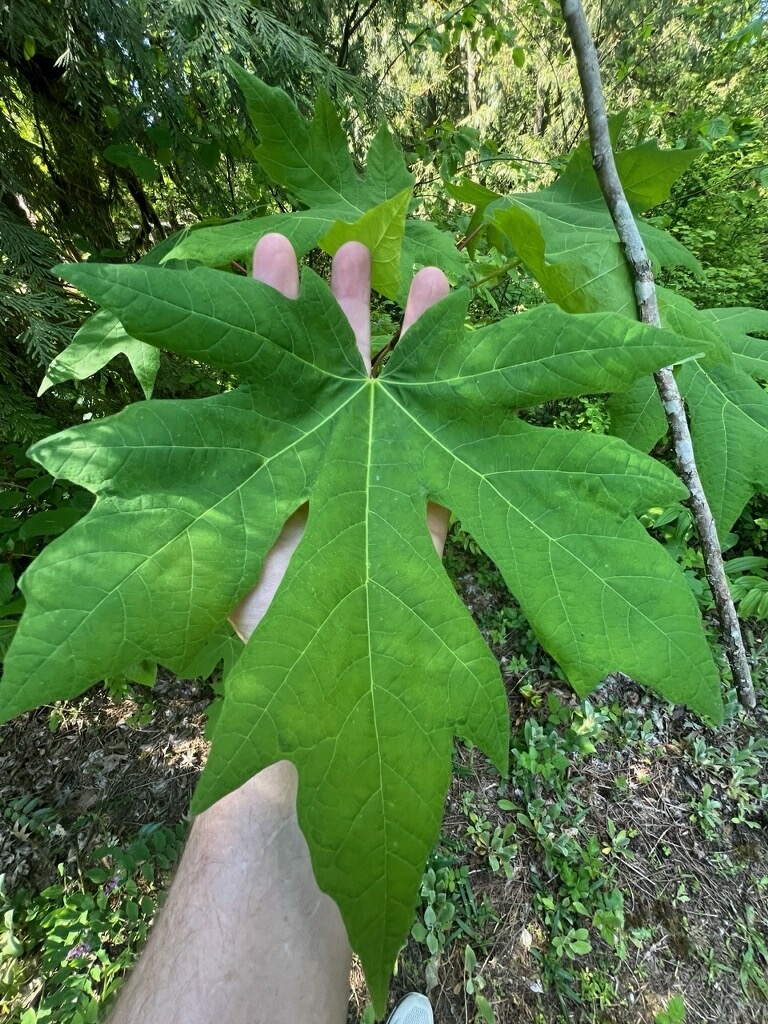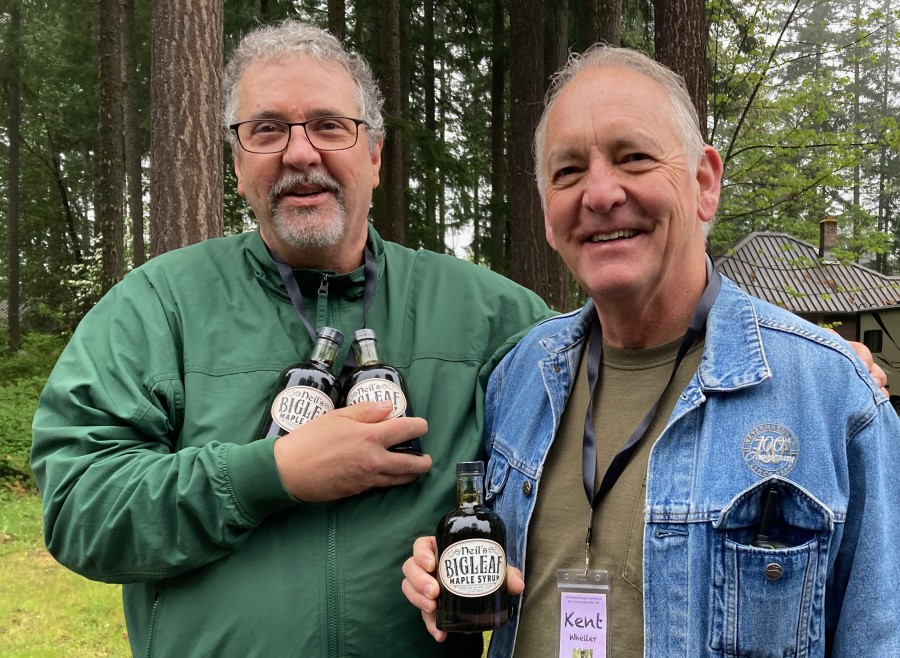
(Visited 137 times, 2 visits today)

Dr. Mike Rechlin, Lead Researcher for the Appalachian Program at
Future Generations University

Eric Jones( left), Oregon State University, with newly elected officers of the
Oregon Maple Syrup Producers Association (second from left to right) Dan
Caldwell, Connie Olsen, Dean Olsen and Joe McGilvra.

Acer macrophyllum – Now that’s a BIG Leaf.

Eric Jones (Oregon State University) and Kent Wheiler (University of
Washington) facilitate research and the expansion of tapping in the Pacific
Northwest.

Members of the Washington State Maple Syrup Producers Association
leadership Team. (left to right) Cory Davis, Daryl Dietrich, Patrick Shultz, Rich
Weiss, Neil McLeoud and Mark Butler.
For more information about maple syrup production, responses to climate change in the sugarbush, and other topics mentioned, please visit the Nature-based YouTube channel or email syrup@future.edu.
Read the latest dispatches from our team, stories of community-led transformation, updates on alumni and profiles of students as we work to create a more sustainable, just and equitable future. These voices center strength, hope and resilience, paving the way for everyone to participate in building Future Generations.